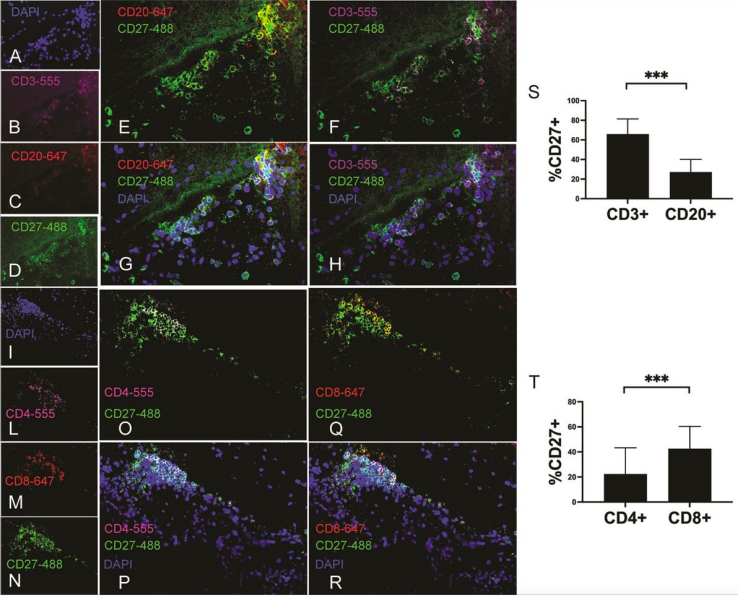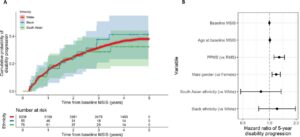
“Soluble CD27 is an intrathecal biomarker of T-cell-mediated lesion activity in multiple sclerosis.”
Maria T. Cencioni, et al. – Imperial College London. Under review at Journal of Neuroinflammation.
Background: Soluble CD27 (sCD27) is a biomarker for active lymphocytes in cerebrospinal fluid (CSF), but the source and function of sCD27 in MS are unknown.
This Study: After confirming that sCD27 levels are higher in patients with MS than patients with other neurological disorders, Cencioni and colleagues found that T cells are the primary source for sCD27, with both CD4+ and CD8+ T cells secreting sCD27 following stimulation with an anti-CD3 antibody. Knocking out CD27 in vitro using CRISPR reduced the number of interferon gamma-secreting T cells and the levels of the activating transcription factor T-bet, indicating a reduction in active T cells. In subjects with post-mortem brain samples and ante-mortem CSF samples, higher levels of sCD27 correlated with increased T cell infiltration, as well as B cell infiltration to a lesser extent.
Bottom Line: sCD27 is a key factor for T cell activation and a marker for lymphocyte infiltration into the brain, making it a critical MS biomarker and potential therapeutic target.




